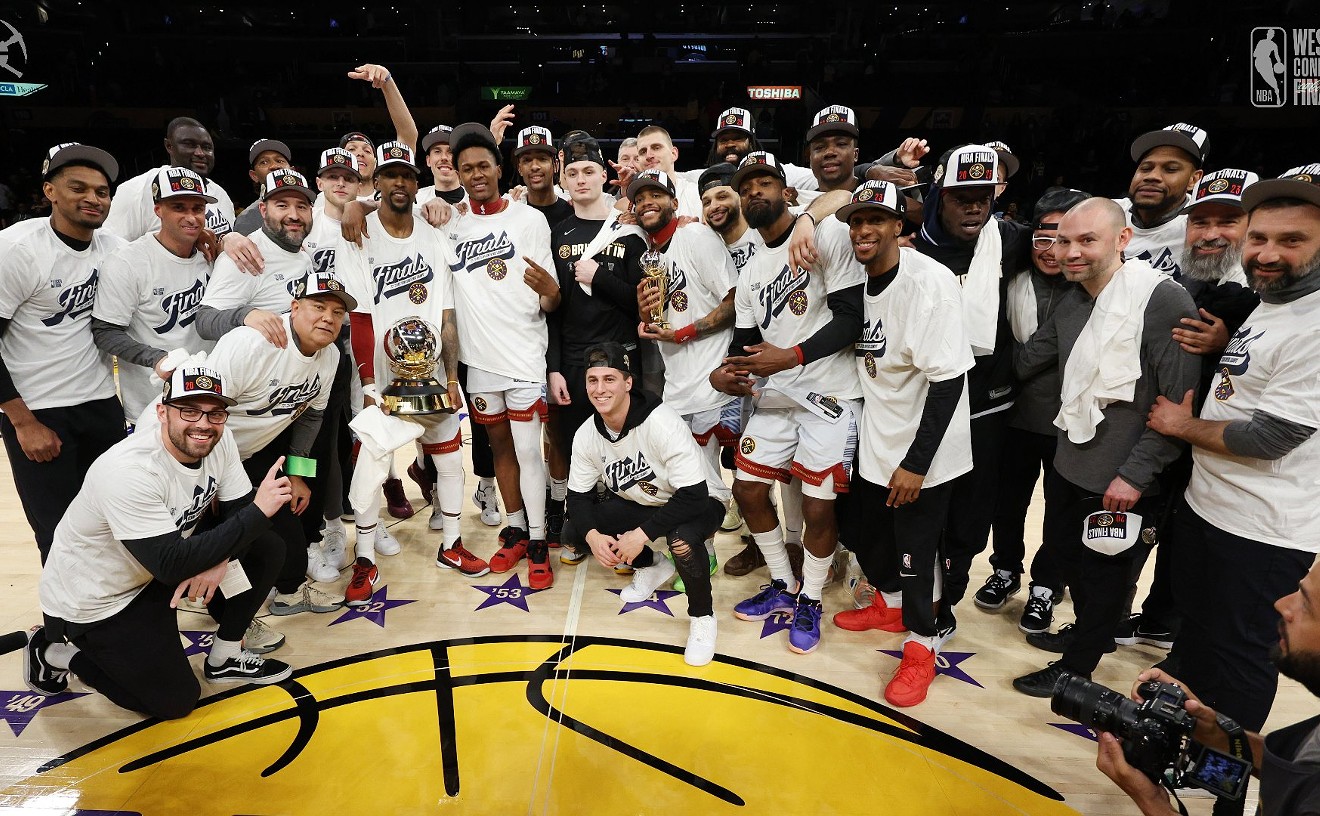Rocky Mountain News editor/publisher/president John Temple has no shortage of detractors in and out of his newsroom, as he well knows. "I'm a pain in the ass," he says, noting that he's as likely to bust his employees' chops over a dubious subhead as he is for a major botch. However, his constant pushing and prodding, not to mention his creative restlessness, makes his paper much more likely to surprise readers than is its crosstown competitor. The Denver Post is a comparatively consistent product, plugging along in the time-tested manner of U.S. broadsheets over decades past, while the Rocky is always open to trying something new. The results aren't always positive: Remember the recent brouhaha over the decision to Twitter a child's funeral. But such attempts help keep the Rocky feeling fresh at a time when too many dailies are in a funk caused in part by the sense that the print medium is about to go under for the last time.
Examples? Temple's decision to stop endorsing candidates weeks before a presidential election and his continuing devotion to big projects of the sort many of his peers no longer see as economically feasible. Among the latter is "The Crevasse," a massive series by reporter Kevin Vaughan (author of last year's "The Crossing") that's running in five separate ad-free sections over the course of this week.
These efforts may seem to have little in common, but Temple believes that together they help establish the tabloid's identity. "I can't control how people think or what their perceptions are," he acknowledges. "But I want them to feel like the Rocky is a vital, engaged participant and contributor to the life of the community."
During most of its existence, E.W. Scripps, the Rocky's owner, made a company-wide presidential endorsement. That changed in 2004, but Temple chose not to take advantage of the option this year. He didn't tell his Scripps superiors about this switch in advance, which isn't unusual, he says; the company allows individual papers to make their own decisions in the vast majority of cases. Regarding this one, Temple says he's been mulling it over for a while -- and a comment attributed to Time magazine's Richard Stengel made a particular impact on him. "He wrote that young readers don't understand how a newspaper can say it's fair in the news pages and then make an endorsement -- say, 'We're for John McCain' or 'We're for Barack Obama,'" he notes. "There's a dissonance there, in his view."
Temple doesn't go quite that far: He thinks it's fine for other newspapers to offer candidate endorsements and concedes that he enjoys reading them. But he thinks removing endorsements from the equation in the Rocky's case allows the paper even more freedom to "take on issues from all comers -- because we don't have a horse in the race."
Of course, the majority of press observers will continue to see the Rocky as an editorially conservative publication whether it formally endorses candidates or not -- and Temple's not sure how long it might take to change this opinion. After all, eight years after the creation of a joint-operating agreement linking the business arms of the Post and the Rocky, he notes that plenty of readers -- and even some politicians -- don't fully understand that the papers' newsrooms remain separate and independent. Nonetheless, he believes that "endorsements tend to color how other things are perceived" -- and he wants to do whatever he can to change that.
Regarding multi-part or investigative stories, Temple points out that "The Crevasse" is hardly the only one the Rocky has offered of late. To him, even his highly unusual move to commission Colorado authors to write short stories in commemoration of Denver's 150th anniversary qualifies. (The ongoing "A Dozen on Denver" collection can be accessed here.) Yet Vaughan's latest opus is among the largest and most sprawling of the year. "It's going to run forty pages over five days," Temple reveals. "There'll be a film on Friday, and there's already a trailer video and multiple slideshows -- and we're doing a forum at the newspaper next week so that readers can meet Kevin and the subject of the series."
None of this is cheap. But Temple says, "I don't think it's advisable for newspapers to pull back on these things -- because they are, in my view, defining projects. They indicate what you aspire to and the kinds of commitments you're willing to make to get stories right, to be sensitive, to be profound, to tell stories in a really compelling way."
Today, of course, the Rocky has fewer resources than it once did due to current economic conditions in the journalism industry and beyond. According to Temple, though, "it's ultimately what you do with the resources you have that matters most -- and I look at it as a real cop-out to spend your time worrying about what you don't have. That's always been a hallmark of the Rocky. We focus on what we expect of ourselves and what we think we can do. There's a lot of things we can't control right now, but we can control the quality of our work." -- Michael Roberts











